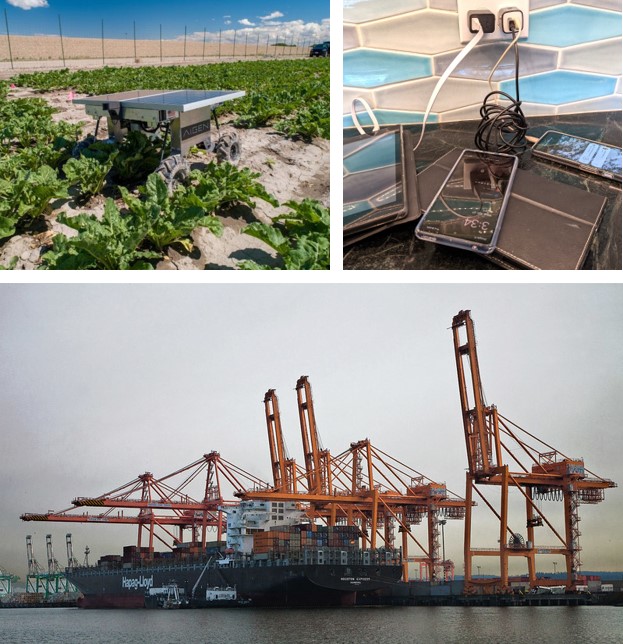
Here’s the latest funding news for climate tech startups across the Pacific Northwest.
BattGenie
New funding: BattGenie landed a $1.5 million seed round from Powerhouse Ventures and VoLo Earth Ventures, plus a $300,000 grant from Washington state.
The venture capital will pay for tech development, new hires and commercializing their product.
The grant comes from the Washington State Department of Commerce. It will fund a project to repurpose retired, electric bus batteries for the electrical grid. The project site will be chosen by Two Rivers CDC, a Native American-owned nonprofit.
The gist: BattGenie is a University of Washington spinoff creating software to improve the performance of lithium batteries. The software optimizes fast recharging while extending the life of batteries.

The history: The company started in 2013 and incorporated in 2017. Its technology comes from the lab of Chief Technology Officer Venkat Subramanian, who is now at the University of Texas. Its other co-founders, CEO Manan Pathak and Chief Product Officer Chintan Pathak, earned their doctoral degrees from the UW.
BattGenie has seven employees in Seattle and Austin.
Last year the startup joined an accelerator led by energy giant Shell Global and the National Renewable Energy Laboratory. Past funding includes a $100,000 investment from Liquid 2 Ventures; a $5 million grant from the Department of Energy (DOE); and $75,000 in grants from multiple organizations.
The take: “With our technology, we’re proud to have demonstrated battery cycle life improvement in excess of 100%, increased battery storage, and charge times as short as 15 minutes across batteries used in EVs, consumer electronics, grid storage and more,” Pathak said in a statement.
OCOchem

New funding: OCOchem, a Richland, Wash.-based energy startup, has received two government grants.
- $2.93 million awarded by the DOE to a partnership including OCOchem, carbon dioxide capture company AirCapture, and others. The cohort is designing a plant that uses waste steam generated at a fertilizer facility to capture CO2 from the air and convert it into formate.
- $1.5 million from the Department of Commerce for a project to develop green, portable energy generators and produce electro-fuels for use at the Port of Tacoma. The grant comes in addition to $2.5 million contributed by other sources.
The gist: OCOchem, located in southeastern Washington, is part of a growing sector to create new fuels and other products that have a reduced climate impact and put CO2 to use. OCOchem’s strategy is to cleave hydrogen from water and bind it to carbon dioxide to create a liquid molecule called formate.
Formate can be used to produce energy, green hydrogen or to make chemicals.
The founders: CEO and co-founder Todd Brix was at Microsoft for 18 years before launching OCOchem in 2017. He worked in IoT, mobile and e-commerce in the Windows Business Group. He began his career at Chevron Research and Technology.
Vice President of Engineering Dr. Arun Agarwal has more than a decade of professional R&D experience in renewable chemicals, energy, oil and gas.
A.T. “Terry” Brix, chairman and chief strategy advisor, has created or run 16 green chemical companies over four decades, leading to seven exits and one IPO. He’s also dad to Todd Brix.
Other funding: OCOchem has received multiple grants from DOE and has partnerships with multiple universities.
In 2018 the startup closed a $700,000 seed round backed by Bend Venture and angel investors. In 2020, it joined the inaugural accelerator cohort of Halliburton Labs and received its first commercial contract from the U.S. Army to produce formate.
Aigen
Funding update: In January we reported that Aigen, a startup developing solar-powered robots for weed control and soil regeneration, had raised a $4 million seed round. That funding has since grown to $7 million.
Due to “overwhelmingly positive reception from the market, top-tier talent and investors” the team opted to increase the round, said co-founder Kenny Lee by email.
The Kirkland, Wash.-based ag tech company launched in 2020 and has 10 employees. Aigen co-founder Rich Wurden was one of the first engineers at electric boat company Pure Watercraft and worked at Tesla. Lee has a background in cybersecurity and co-founded a startup that was acquired in 2017.




